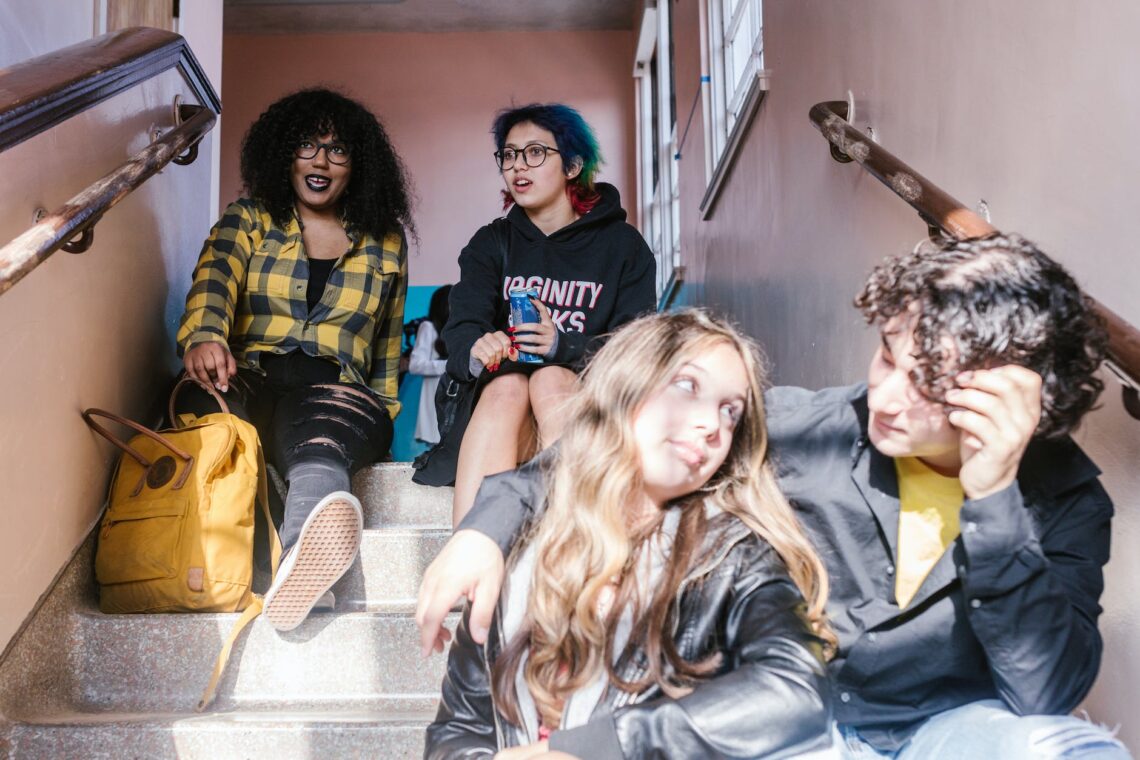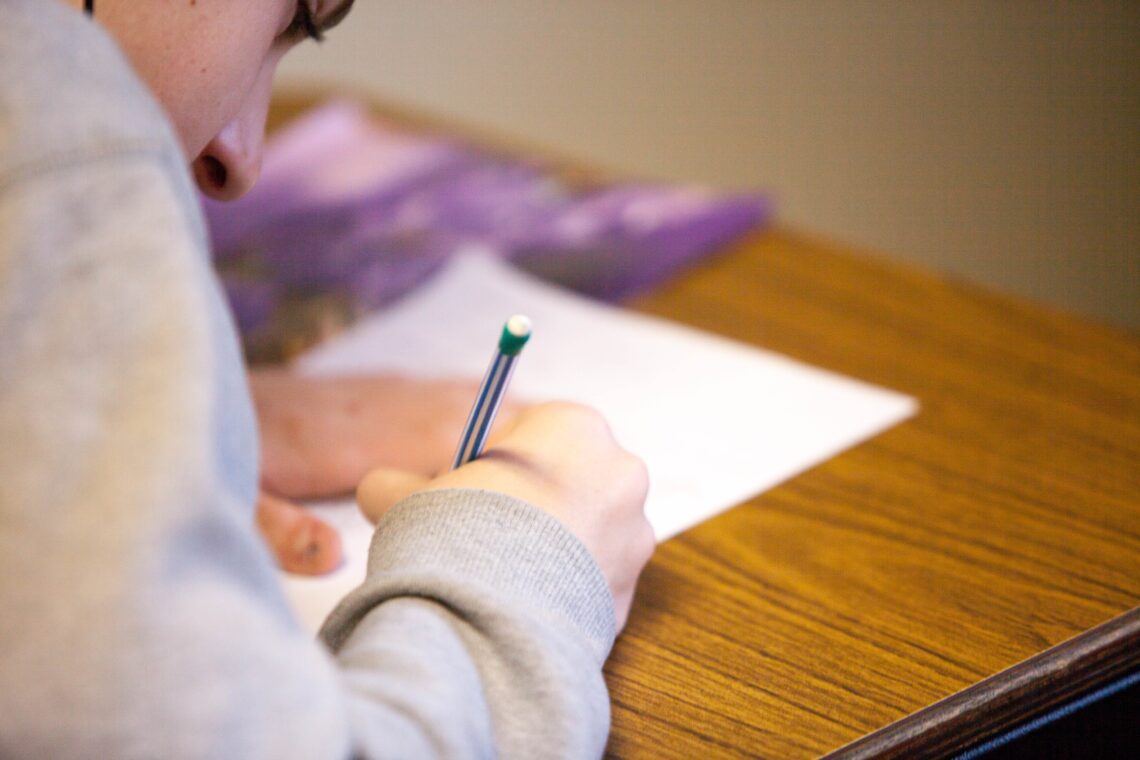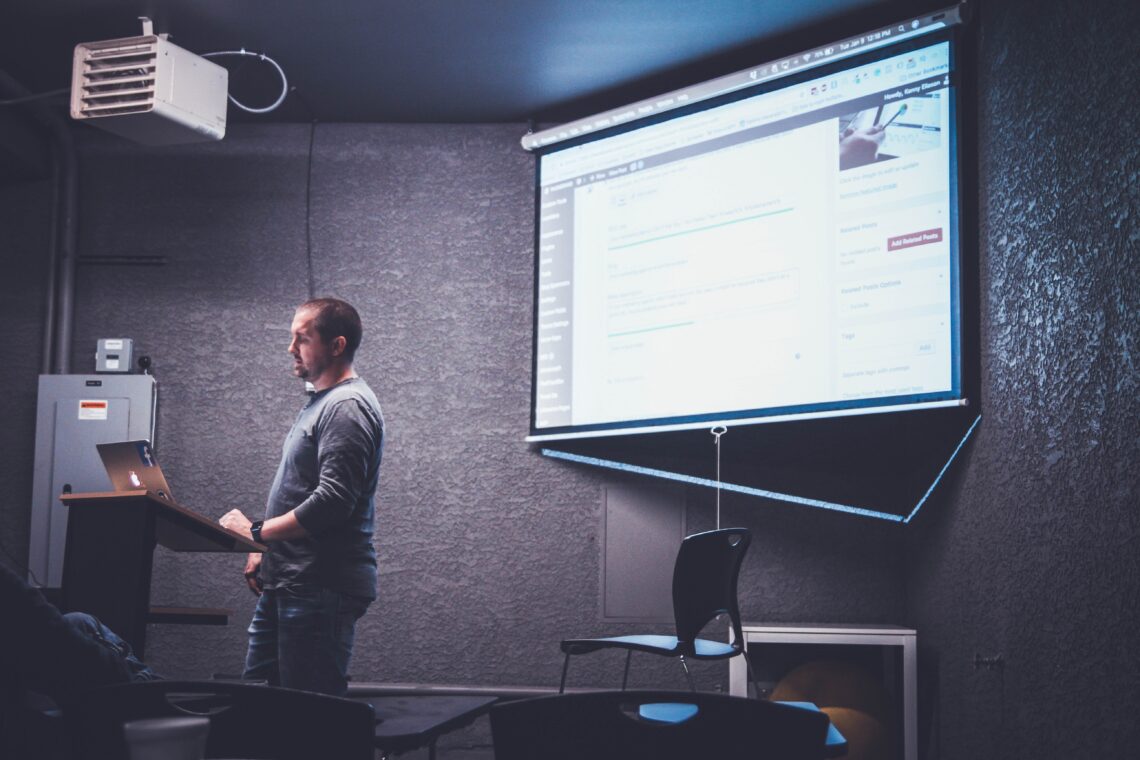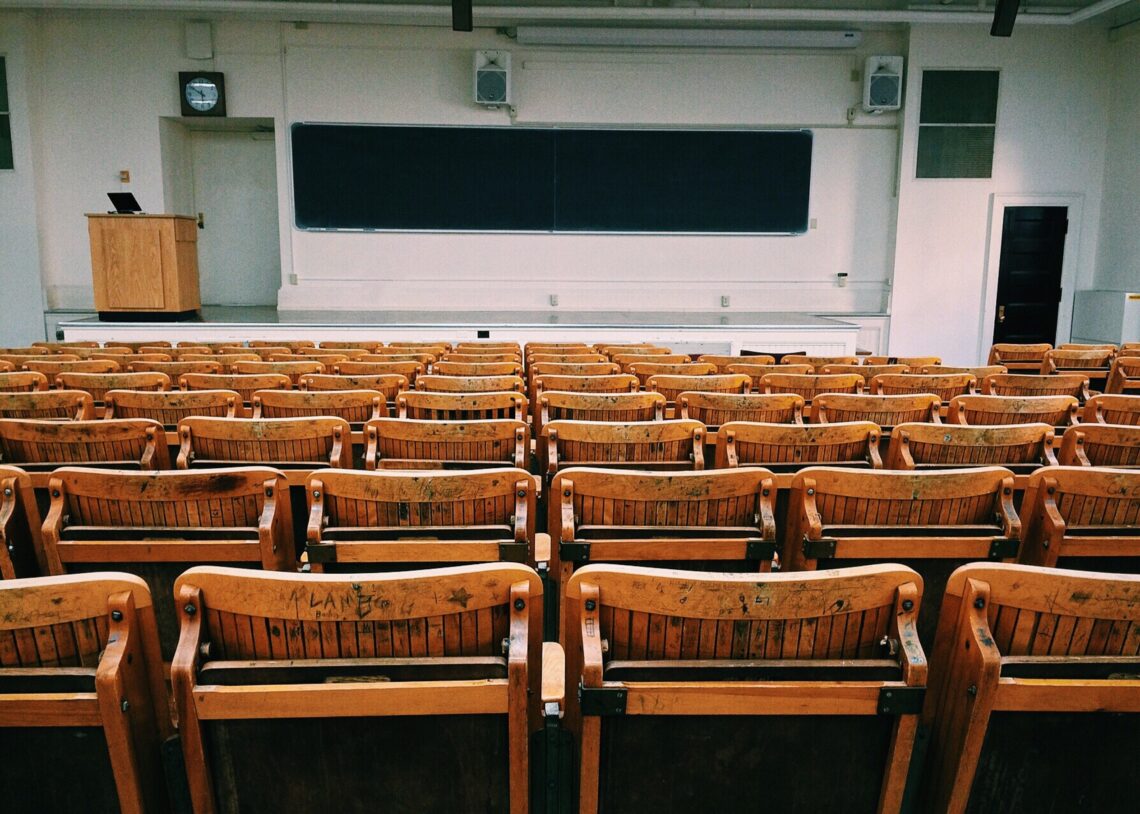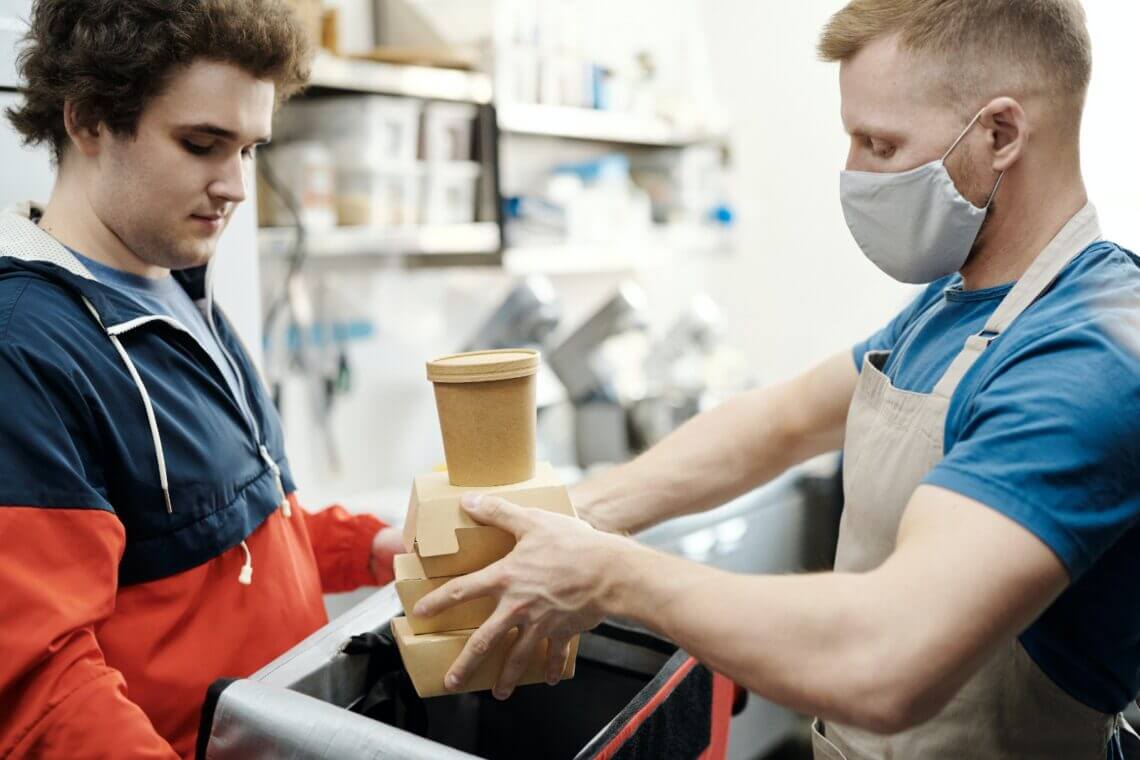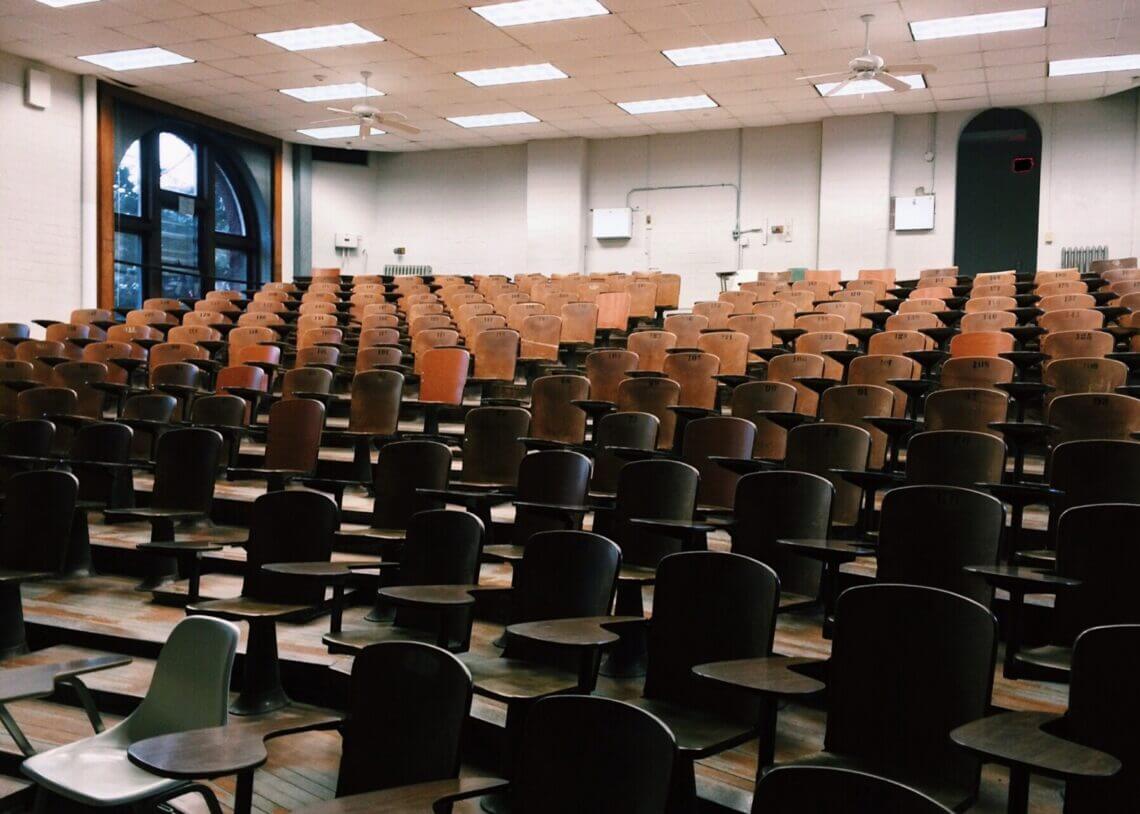School
-
Getting the most out of parent-teacher interviews
Parent-teacher interviews are an integral part of a child’s education. Parents can be valuable assets in improving their child’s learning experience. It is important for teachers to ensure these meetings go well so that parents know how to best support their children. Keep reading for some guidelines on how to get the most out of parent-teacher interviews. Prepare beforehand Just as students must put in the work before giving a presentation, teachers must have the necessary materials prepared before the parent-teacher conference takes place. This can include grades, rubrics, assignments, and anything else the teacher thinks might be relevant. Even if not all of these materials end up being used,…
-
Strategies and tools: Battling bullying in school
Bullying remains a consistent and pervasive issue in schools all over the globe, and Canada is no exception. As youth navigate the complex landscape of adolescence, it is essential to know your resources, tools, and strategies to confront and overcome bullying. Build a support system Establishing an expansive and compassionate support system is one of the most effective ways to combat bullying. For youth, confiding in friends, family members, or trusted adults about their experiences is extremely important. A 2022 study found that social support enhances resilience in stressful situations. This network of people who care can provide emotional support and practical advice on handling bullying situations. Lean on trusted…
-
Connecting with your teachers: How It helps everyone
One aspect of learning that is often overlooked is the relationship between teachers and students. The connection between students and teachers is vital, and a positive one benefits everyone involved. Building this connection might be difficult at first, specifically for students, but once established, many positive opportunities emerge for both the student and the teacher. Establishing a connection between a student and a teacher is very crucial. Keep reading to learn more about how to build connections with teachers and the benefits of reaching out and forming an academic relationship with your teachers. How to build connections with teachers Building connections with teachers can initially seem difficult, but it is…
-
From club to career
Throughout elementary and high school, there are many clubs and extracurricular activities available for students to join. They range from sports to music and many others in between. These activities are available for students to have fun and meet new people, but they can have a greater impact than one may suspect. According to an article by Learning Cubs, “School clubs are beneficial for children of all ages. Whether they’re making new friends and burning off energy or they’re getting through some difficult maths homework, there is a place for every child in an after-school club.” In fact, clubs and after-school activities may play a huge role in future careers.…
-
Post-secondary 101: Intro to academic writing
Transitioning from high school to post-secondary school can be difficult. Much of the post-secondary experience is new, including learning how to write academically. There are many new concepts to get used to, like scholarly research methods, proper citation styles and longer essays. Post-secondary-level writing can feel like a big jump from what students learn in high school, and it takes some time to fully grasp. Here is some advice to get you started. Understanding the assignment It is imperative to understand what an assignment requires in order to do well. Every assignment will serve its own purpose within a course. Some assignments allow students to explore, and others have specific…
-
Far from home: Dealing with homesickness in post-secondary school
As a post-secondary student, moving to campus for the first time can be scary. It can be difficult adjusting to a new environment and making new friends. For many students, one of the most daunting parts of starting post-secondary school is being away from home for the first time. Research in this field is not conclusive. However, a study by the Higher Education Research Institute at the University of California shows that 71 per cent of students felt homesick at some point in their first year at post-secondary school. A separate study by Talita Ferrara for the Institute of Education Sciences raises that number to 94 per cent. The latter…
-
Youth Mind highlights youth initiatives: Philemon Wright High School’s Peer Support Group
Featuring Academic Counsellor Katie Clow and Philemon Wright High School’s Peer Support Group A message from Katie Clow on Philemon Wright High School’s Peer Support Group My name is Katie Clow and I am an Academic Counsellor at Philemon Wright High School, in Gatineau, Quebec. At the beginning of the school year, students were invited to participate in a Stone Circle through Mindshift. During these conversations with youth from across North America, my students identified a common theme: having a space to come together and support each other. And thus, our Peer Support Group was born. In partnership with Connexions Resource Center, a local non-profit that links the Anglophone community…
-
The gamble of education
Tuition fees remained stable for domestic students throughout COVID-19. However, post-secondary isn’t always accessible or recommended for everyone. In 2019, Conservative Leader Doug Ford made cuts Ontario Student Assistance Program (OSAP) funding. This left many young people to figure out other avenues for funding their education. Some Ontario graduates share their experiences and advice for youth who are considering post-secondary. Academic fulfilment and work transitions Brie Bennett’s York University theatre degree and gender and women’s studies certificate left them unfulfilled amid attention problems and isolation. “I was expecting this deep enrichment and connections, and I was very separated from myself, from my industry and from my peers,” they said. They…
-
Studying to succeed
School has been difficult for students the past few years. Continuously switching between online and in-person classes and a lack of social interactions have impacted students’ focus on their studies. All these changes may have also affected the way students study or prepare for school-related assignments. This article provides a variety of tips to get back on track and advice from students and principals regarding the following strategies. Notes They might not be everyone’s favourite, but notes will always play a part in success. Colin Halsal, the vice-principal at Vimy Ridge Public School in Ottawa, said he believes notes are a must. “I need to be writing while I listen,”…
-
Wellness within academia
A long standing practice in academia is the categorization of students based on their grades. Students feel being ranked by grades in post-secondary determines their next steps and whether they should stay within their chosen field of study. Attending post-secondary comes with a heavier course load that doesn’t discriminate. Toleen Abdul, a fifth-year fashion design student at Toronto Metropolitan University (TMU), says high expectations come from professors regardless of program or major. “As ableism is woven into the fabrics of higher educational institutions, universities are built to make students believe that if you can’t deliver to these high and often unrealistic expectations, that it’s a problem of your abilities and…
-
The future of learning: Is hybrid school here to stay?
In March 2020, the Ontario provincial government began announcing strict COVID-19 measures to reduce social contact. One of those measures was closing all schools and switching to virtual, remote learning. For some, this switch drastically affected how young people absorbed information and experienced school. Julie French, a mother from Toronto, is frustrated with many aspects of the changes that students face. She noticed that student-teacher engagement dwindled during in-school closures. “I think the teachers were getting discouraged because they had to teach 30 black boxes rather than 30 living, breathing kids,” she says. “That’s if the camera is even on; many kids had their cameras off.” Since the COVID-19 pandemic…
-
So you’ve chosen the wrong program, now what?
Choosing which major or degree to pursue can be very difficult, especially considering it’s a decision that is typically made in the final years of high school. That being said, it’s common to feel unsure about the program one has chosen to study. Patrícia Dela Cruz, 21, was accepted into Ryerson/X University’s fashion design program during her final year of high school. “I love anything arts-related—and that includes fashion design, so I was beyond ecstatic when I got accepted,” she says. “The program is a difficult one to get into and being one of the students selected felt like such an accomplishment.” However, Dela Cruz says that she had gone…
-
Choking on your words
I can still remember the last presentation I ever did in high school. It was for grade 10 English. The assignment required an analysis followed by a 15-minute presentation in front of the class. Up until that point, this was the longest presentation of my academic career. I rehearsed in front of my mirror until my lips were dry. I rewrote it several times to take out difficult words. I did breathing exercises. I did everything I could think of. The presentation would’ve still followed the same trajectory even if I had rehearsed for a lifetime—my body shaking as I stood up in front of the class and sputtered the…
-
What comes next?
As the upcoming semester approaches, students who are in their final year of study may be experiencing some confusion about what to do after graduation. It can be understandably anxiety-inducing with the sudden pressure of entering the “real world” after years of being in school. The options for post-graduates are not limited to simply finding a stable job. There are a variety of paths for those leaving college or university, whether it be continuing their education in graduate school, diving into the workforce or even travelling. Phillip Cruz, who studied architectural technology at George Brown College, recalls contemplating his career path in his second semester and being unsure of whether…
-
Choosing my path
In high school, I have been able to discover myself and find out who I am as a person. Each year has been special and unique in its own way. My journey through school has been tough, especially because I decided to not only focus on academic work but also invest quality time in extracurricular activities—while also adapting to school during the pandemic. Going back to school this coming fall has elicited a jumble of emotions for teachers, students and parents, who all want to see students back in the classroom. But, everyone is also scared of the risks that come with in-person learning. I am pretty nervous about going…
-
Which way to class?
During the pandemic, learning has become a juggling act. Ontario high school students have had to go back and forth between learning in a classroom with masks on and learning through a computer screen at home. Both students and teachers have had to roll with the punches with new government regulations. After a restful summer, high school students have many questions about what their learning is going to look like come September. For the Fall 2021 semester, the Ontario government announced a hybrid learning plan across the province in elementary and high schools. With the hybrid model, a student’s educational journey will be in their own hands. A York Region…
-
The impact of virtual learning on marginalized students
The side effects of moving in and out of lockdown has exposed a growing issue for marginalized youth in the Canadian education system. While most at risk in terms of health and well-being, these students had to quickly adapt to a transition to virtual classrooms and juggle challenges such as economic hardship, cultural pressures and finding access to technology. A study by Wilfred Laurier University found that students most affected by online classes and isolation are those who identify as racialized or Indigenous, newcomers or individuals from disabled populations. These groups suffer from an achievement gap, in which there is a significant learning loss compared to students living in high-income…
-
Going abroad for an internship: What to expect
It was a particularly busy day for news — a particularly busy month — when I was seated at my intern desk in CBC’s London office, frantically dialing the phone. It was the height of the outbreak of COVID-19 in Italy and I had been tasked that day to land an interview with an Italian health professional for one of CBC’s senior journalists. After four hours of anxiously dialing numbers and trying to communicate with doctors who didn’t speak any English, I decided to try my hand at Italian by typing what I wanted to say into Google translate and reading it aloud over the phone. Working in an extremely intimate newsroom meant that…
-
Community and connection for international students studying in Canada
International student enrollments in Canada have more than tripled over the past 10 years, according to Statistics Canada. Young people from all over the world are drawn to Canada’s warm and welcoming culture as well as diverse population, making it an appealing destination for students looking to attend university abroad. Travelling internationally to study is an exciting and life-changing experience, but it can also garner feelings of isolation and anxiety. Ira Famarin and Harkrishan (Harry) Singh Punn are two students studying at Canadian universities who are from Singapore and Oman, respectively. They say that building a community in Canada while virtually keeping in touch with family and friends from home has…
-
The delicate art of procrastination
Chloe Chen dreamt about doing a school assignment. She had gone to sleep at three in the morning. Earlier that night, Chen, then a first-year student in Ryerson University’s fashion design program, had planned to complete a major project for one of her main school courses. A few hours prior, when Chen was finally about to start working on the assignment that she had left to the last minute, she received a text: A man asked her out on a date. Chen says that even at the time, she knew she had to do the project, but she was hungry and wanted to go out for dinner. She decided that…
-
What’s next after graduating
Life after graduation Life after graduation can be quite dreary and unpredictable, especially in the times of a pandemic. Many recent graduates may have no idea what’s next. It can be challenging to find fulfilling work, particularly after the COVID-19 pandemic caused millions to lose their jobs. Youth Mind spoke to some recent graduates about their life in the wake of graduation. Pursuing interests outside field of study Graduates do not necessarily enter into their jobs immediately after graduation; some take time off to pursue other interests unrelated to their field of study. Sabrina S. graduated from the University of Waterloo in 2020 with an urban planning degree. She says she entered…
-
How to maintain academic excellence while working part-time
It’s common for college and university students to work part-time while enrolled in school. According to Statistics Canada, over 52 per cent of college students in Canada, ages 15 to 19, worked during the 2017-18 and 2018-19 school years. That number rose to over 54 per cent for students ages 20 to 24. For universities, 34 per cent of students ages 15 to 19 worked during those years, while over 45 per cent of students ages 20 to 24 worked. The employment rate for post-secondary students was 52.5 per cent in Feb. 2020, before the COVID-19 pandemic caused that number to plummet. As the world returns to normal, many students will surely…
-
Students save money on public transit amid the pandemic
Many college and university students in Ontario, particularly those in the Greater Toronto Area, normally take public transit to get to class. According to a 2015 survey of more than 15,000 students by StudentMoveTO — in collaboration with the University of Toronto, Ryerson University, OCAD and York University — 63 per cent of respondents reported the use of public transit to get to school. Ryerson’s data from 2017 to 2018 indicates that more than three-quarters of students at the university took public transit to school; 54 per cent used local transit like the TTC, while 23 per cent took regional transit like the GO train. For a Ryerson student like Abbey Humphreys-Morris, who takes…
-
Canadian tuition prices continuously rising as government funding declines
The cost of university in Canada has been on the rise for the last few decades. More recently, there has been a steady increase of tuition costs in the past few years. A report that Statistics Canada released in 2018 showed that the cost of tuition for full-time undergraduate programs for the 2018-19 school year was $6,838, on average. That marked a 3.3 per cent increase from the previous academic year. The most expensive average tuition fees in undergraduate programs for the 2018-19 academic year were seen in dentistry ($23,474), medicine ($14,780), law ($13,332) and pharmacy ($10,746). Statistics Canada reported that “these four programs accounted for 3.6 [per cent] of all Canadian…
-
Athletes find ‘creative ways’ to continue training amid the pandemic
In early June, the majority of sports conferences under U Sports, the governing body of university sports in Canada, cancelled games and championships for the fall semester because of the COVID-19 pandemic. But for the athletes affected, the routines built do not stop. Instead, they had to find creative solutions around the restrictions. “We were forced to develop a new way of training virtual online as a team, but even then, it just didn’t feel good enough as an athlete to be training from inside your home,” said Abdallah El-Chanti, a midfielder with Ryerson University’s men’s soccer team. In addition to soccer, some of the sports cancelled are football, rugby,…
-
Why unpaid internships can be unfair to those who can’t afford to work for free
For students, summer is always a great time to pick up a part time job and save some cash for the upcoming school year. With students often not working during the school year, a summer job helps cover expenses like rent and cost of living, as well as providing some pocket money. Many universities require an internship to graduate. Even when they are not mandatory, internships are a great time to gain experience in one’s chosen field. The problem for students is that many of these internships are unpaid. Adriana Cavalieri, who graduated from Mohawk College, was working full-time hours for her unpaid internship, while balancing school and her own…
-
How students and schools can successfully prepare for a semester of online learning
As the fall semester gears up to start, college and university students will have a very different school year than usual. With the COVID-19 pandemic still ongoing, Canadian schools have decided to hold classes completely online. However, learning from home can make it challenging for students to stay concentrated and motivated. Looking at some ways to succeed can be beneficial to approaching this new way of learning, as well as understanding the adaptation schools are making in order to help students with this transition. Transitioning into completely online courses will be a learning curve for students and professors. Johnathan Small, Associate Vice President of Online Learning at Regis College, wrote…







